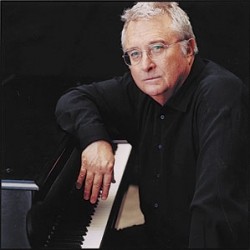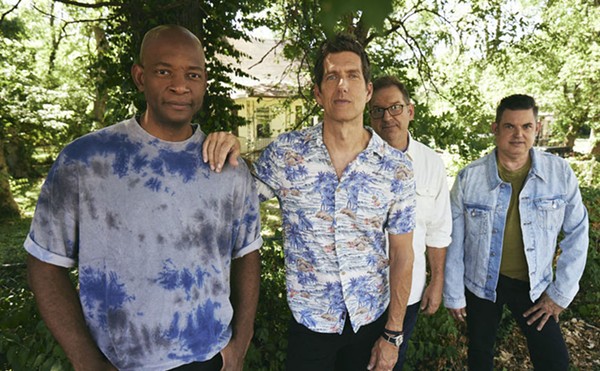From the very start, Randy Newman has been a rare commodity in the music industry. A contemporary songwriter with a Tin Pan Alley sensibility and an affinity for the Great American Songbook, Newman has also served as a laser-sighted social critic who offers glimpses into humanity's ills through straight reportage or wily narrative. In recent years, Newman has turned his talents to film work, easily retrofitting his highly visual style into a naturally complementary medium.
With Harps and Angels, Newman's first album of new songs since 1999's Bad Love, the multifaceted composer draws on every strength he's exhibited throughout his amazingly diverse career. He effortlessly blends his roles as storytelling balladeer, skilled arranger, intuitive film scorer and scathing sociopolitical commentator, each role informed by his abiding love and deep understanding of Stephen Foster, Irving Berlin and Woody Guthrie.
Newman sidles along to a Dixieland beat on the album's opening title track, as his narrator tells of his less-than-successful reclamation after a heavenly clerical error and a near-death experience, then later, musically channels Kurt Weill and Carl Stalling on "A Piece of the Pie" while lyrically slicing open the body politic of the new American dream and taking John Mellencamp and Jackson Browne to task for patriotic profiteering and easy liberal soapboxing, respectively.
But, as usual, Newman's praises and criticisms are delivered with a tongue firmly planted in both cheeks simultaneously, and his swords of truth are all necessarily double-edged. Last year's iTunes hit, "A Few Words in Defense of Our Country," is less ambiguous; a first cousin to "America the Beautiful" and his own "Political Science," the song pianos along at a countrypolitan pace while making observations - on the current administration, the Supreme Court, the war on terror and the end of America as a world power - which are snarkily sarcastic, achingly funny and smart-bomb accurate. And for those who may have taken thin-skinned offense to Newman's "Short People" (and any other misunderstood reference in his canon), he offers up the educational/discipline wake-up call of "Korean Parents."
Perhaps Newman's greatest gift is his ability to tap into the emotional center of a song to make it heartachingly poignant without resorting to maudlin manipulation. He's at his best in this mode on Harps and Angels with the touching ballads "Losing You" and the album's brilliant closer "Feels Like Home." The former is a wistful remembrance of love, with the time-sharpened melancholy of loss, while the latter is an amazing balladic evocation of an America that, once upon a time, didn't need to be imagined but truly existed as a proper-nouned Dream. Harps and Angels is both a great Randy Newman album - which is an impressive feat on its own - and a brilliant and important album in the wider context of popular music.
Randy Newman Harps and Angels (Nonesuch)












